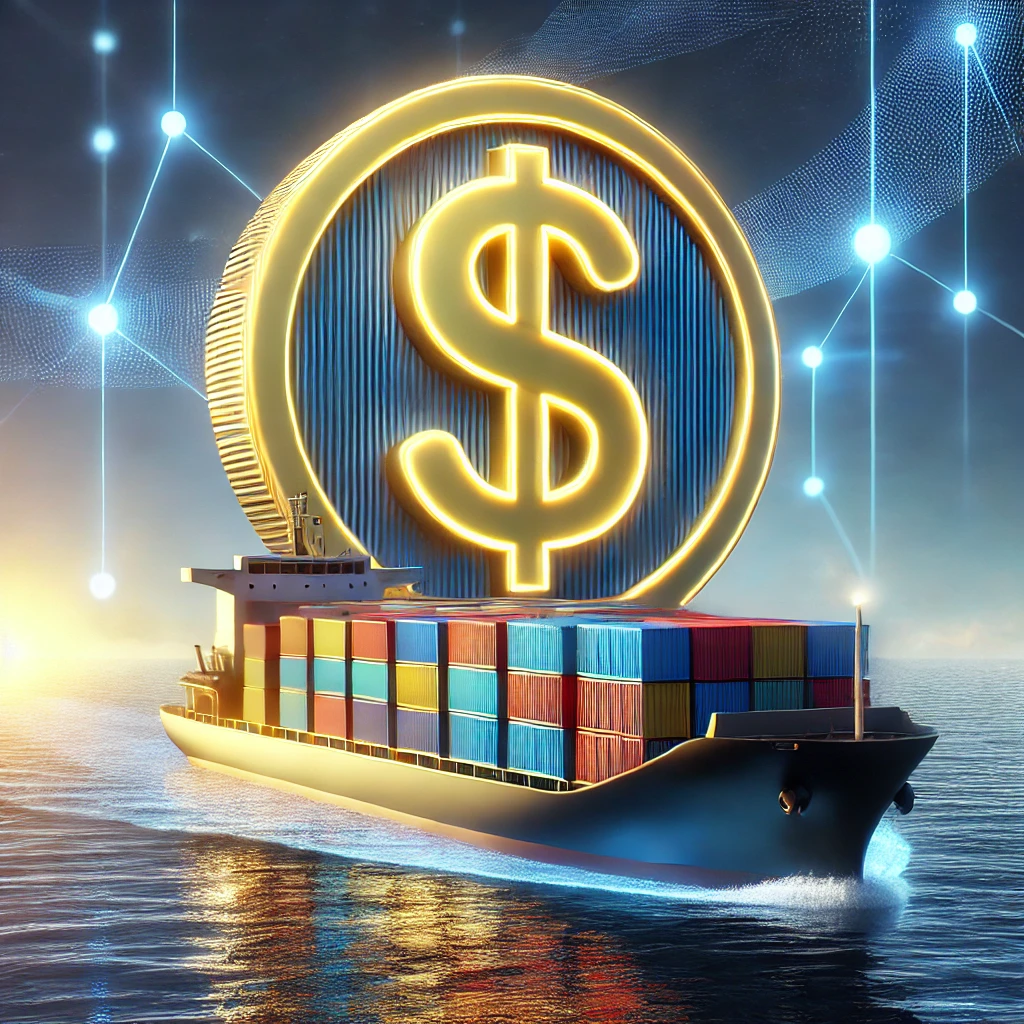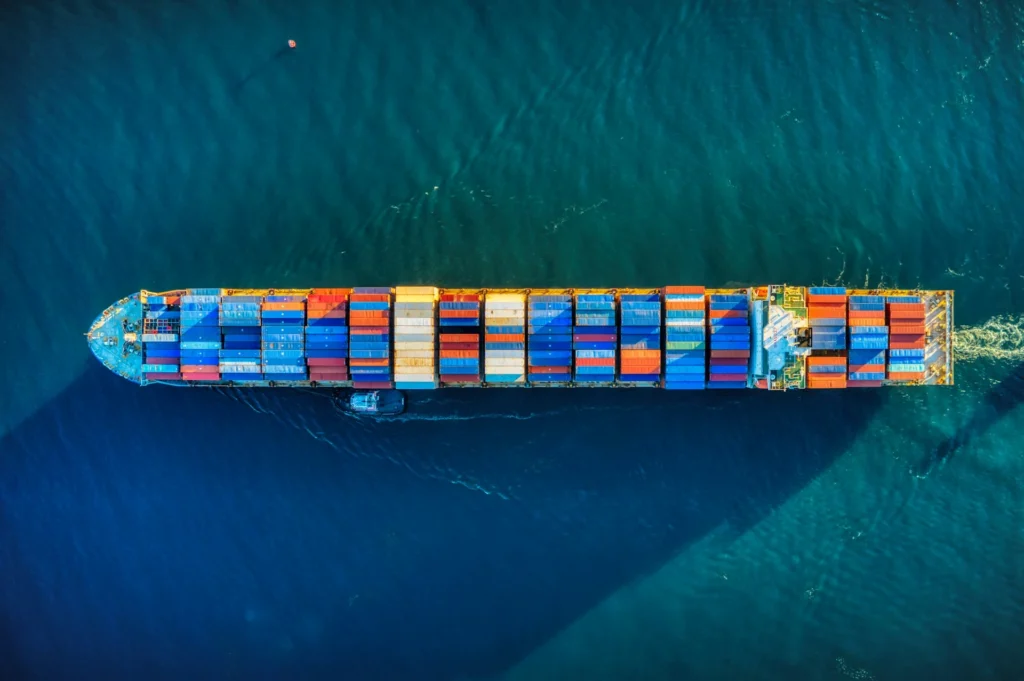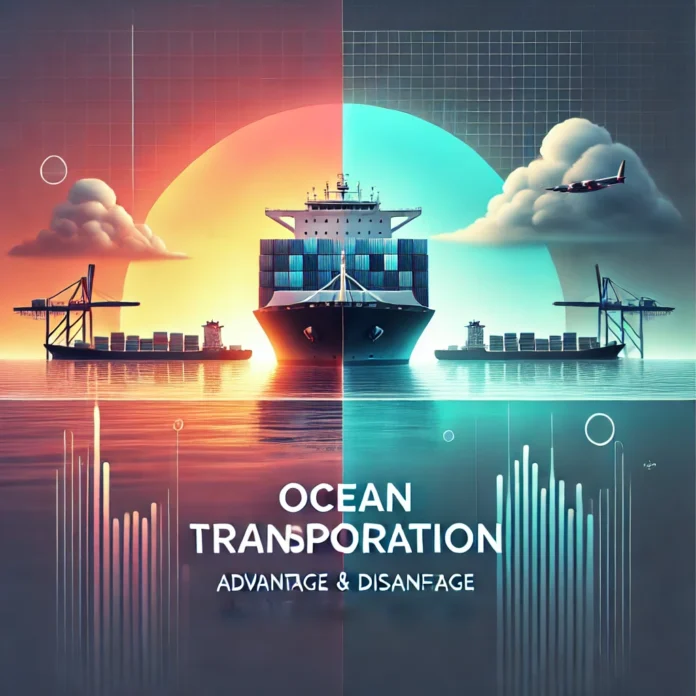Global trade has largely depended on ocean transportation. It makes it possible for products to travel across countries profitably and efficiently. However, why is ocean transportation so popular, and what are the drawbacks?
Let’s “Describe One Advantage and One Disadvantage of Ocean Transportation Below.”
The Advantage: Cost-Effectiveness for Large-Scale Shipping
Have you ever wondered how delicious foods or international devices get into your local supermarkets at affordable prices? The outstanding cost-effectiveness of ocean transportation frequently provides the solution.
It is really difficult to match the efficiencies of scale that come with shipping goods by sea. Do you know that? Thousands of containers can be transported by a single cargo ship, which lowers the cost per unit.

It is the best option for companies transporting heavy or bulky items across long distances because of its price. For example, shipping raw resources like coal, steel, and oil by sea is significantly more cost-effective than shipping them by rail or air freight.
Read More: CRM Software with a Kangaroo Icon
Real-World Example: You will be shocked to know that for international goods shipping, online retailers such as Amazon and Alibaba mainly depend on ocean freight. Their worldwide presence and competitive pricing plans would be seriously challenged in the absence of affordable ocean shipping.
The Disadvantage: Slower Speeds and Time-Dependent Risks
The obvious drawback of water transportation is its speed, regardless of its affordability. A main disadvantage of sea freight is its slow speed. You know very well that in this world, timely delivery methods and quick fulfillment are the standard of success.
Ships normally take weeks or even months to reach their destinations. And it depends on the route and weather conditions. For businesses dealing in fresh goods, late delivery can result in major losses. You just imagine a shipment of fresh seafood stuck at sea for a long period. So as a result, the financial and reputational harm could be serious.

Additionally, ocean transportation is open to unpredictable risks such as piracy, storms, or logistical jams at ports. You can take a prime example of this was the 2021 Suez Canal blockage, which affected global supply systems and lost billions of dollars due to a single ship.
Read More: Discover Luuxly.com
Real-World Example: Rapid changes in trends and response times are key to the fashion industry’s success. Missing important retail seasons due to delays in ocean freight might result in unsold inventory and missed sales.
Modern Innovations Mitigating Challenges
To overcome these limitations, the shipping sector is changing quickly. The industry is changing because of innovations like automated ports, better ship designs, and alternative fuels.

For example, companies can now keep an eye on shipments and make better plans for unexpected hold-ups. Thanks to real-time tracking technologies.
Conclusion
Ocean transportation is still a vital component of international trade since it is the most economical option for large-scale shipments. However, its modest speeds and exposure to delays highlight the importance of enhanced modes of transportation, such as rail or air.
The shipping industry keeps up with technological advancements and industry changes to create a future where cost exists with sustainability and dependability.
FAQs
Ocean transportation offers economies of scale that enable the shipment of large quantities of cargo at a reduced cost per unit.
Raw materials, heavy equipment, and consumer electronics are best suited for ocean transportation.
Because weather events like hurricanes and storms can raise risks and delay shipments. Preparation and insurance are vital for sea trade.
Ocean transportation is becoming more environmentally friendly thanks to innovations like cleaner fuels, energy-efficient ship designs, and stronger regulations.
Never, all of us know that ocean transportation is significantly slower than air freight.
Also Read: How to Do Graffiti Book Free


